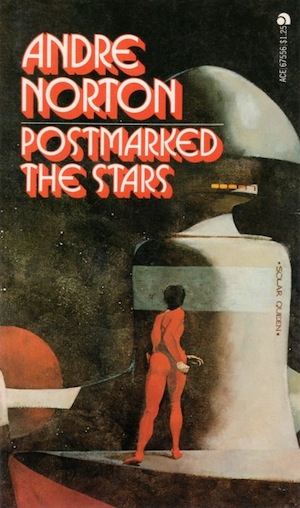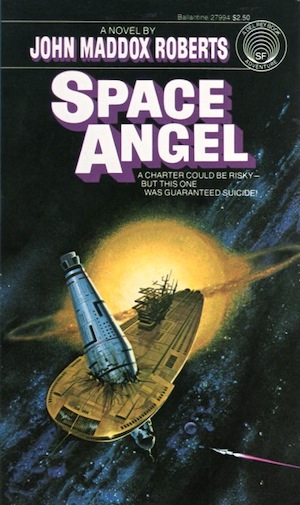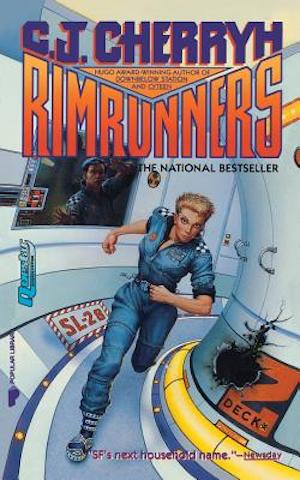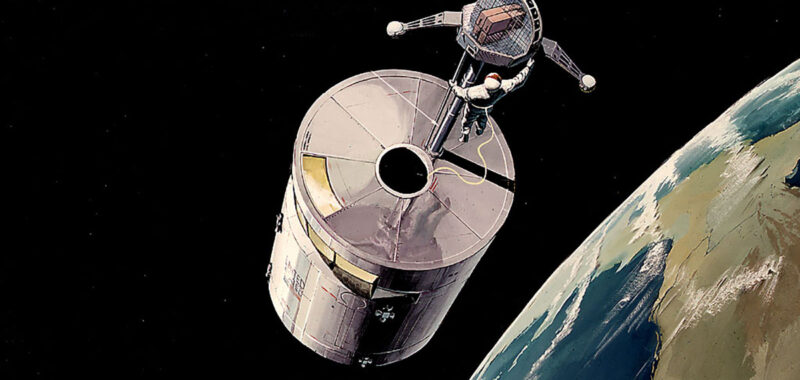Recently, the entire world was rocked by an astonishing development, the consequences of which may well have global implications. The news services have spoken of nothing else1. I speak, of course, of the announcement that in order to secure the future of his creation, the venerable tabletop roleplaying game Traveller, Marc Miller has transferred all rights to Mongoose Publishing.
Traveller allows players around the world to create tales such as this: a baroness, an army major, a mid-grade bureaucrat, a non-commissioned marine, and this guy who somehow failed out of “criminal” who pool their resources to purchase a used freight starship none of them have the skills to operate, decorate it with the photos of their five friends (all of whom died in the Scout service), and live their dream of shipping, I don’t know, cheese from Rhylanor to Sabruse.
As previously discussed, independent traders are a rich source of opportunity—if not for wealth, then for adventure. Being independent, they may roam wherever they choose. Many have complicated backstories that could come back to haunt them. Starships being a hole into which one pours endless funds, independents are frequently more greedy than cautious. Writers have not overlooked the narrative potential of the tramp starship. Such tales abound, of which these are five classic examples.
“Milk Run” by Robert Sheckley (1954)

(Collected in Pilgrimage to Earth) The only flaw in the AAA Ace Interplanetary Decontamination Service business plan is that nobody currently wants their planet decontaminated. Offered a lucrative contract to deliver an assortment of animals to the Vermoine solar system, AAA Ace owner Frank Arnold sees no reason not to sign the ominously forbidding contract. After all, Arnold won’t be flying the AAA Ace starship. Co-owner Richard Gregor will.
Time being of the essence, the pair barely have time to make rudimentary alterations to their ship before Gregor must set off for Vermoine. Once underway, Gregor discovers that his cargo has daunting life support requirements. Failure to rise to the occasion could doom the poor animals or worse, doom AAA Ace’s profit margin. Or, just perhaps, doom Gregor himself.
Sheckley wrote a bunch of AAA Ace stories. Did Arnold ever learn the value of due diligence? He did not. Did Gregor tire of his partner’s lack of common sense? He did not. It’s almost as though Sheckley saw no reason to interfere with a successful story formula.
Postmarked the Stars by Andre Norton (1969)

The Solar Queen’s past commissions have had a lamentable tendency to include undocumented, life-threatening complications. A simple mail run may not be the most profitable contract, but surely it is a safe one. Or so cargo chief Dane Thorson thinks, until he is drugged and replaced by a double shortly before the Solar Queen lifts for backwater Trewsworld. He manages to stagger back to the ship, where he finds his double…
Dead of a heart condition. What was the double’s nefarious plan? It soon becomes obvious. Among the goods being mailed to Trewsworld: animals. The double planted a device that induces reverse evolution. A distressing fraction of the animals are descended from aggressive carnivores. The Solar Queen is now delivering monsters to a world ill-prepared for them.
I honestly don’t know if AAA Ace or the Solar Queen had the worse track record of fulfilling contracts successfully. In the Solar Queen’s defense, nothing they ran into could have been avoided with a little research. Who expects a smuggled monsterizing ray?
Space Angel by John Maddox Roberts (1979)

Experienced spacer Torwald has no difficulty securing a berth for himself on the independent trader Space Angel. Torwald even arranges a position for chance-met poor orphan Kelly. Torwald’s timing is perfect. The Space Angel has only just secured a contract for which success is assured: a quick run to Alpha Tau Pi Rho/4 to retrieve diamonds of unusual size, diamonds whose location is known only to their client Aleksandr Strelnikov.
The malevolent alien Sphere who has been hiding on Alpha Tau Pi Rho/4 is a complete surprise. Recognizing that the humans could be a useful asset in its plan to conquer the universe, if only to provide the mobility that Sphere otherwise utterly lacks, Sphere tempts the humans with the promise of ample compensation. It’s another can’t-lose proposition, just as doomed as the first one.
Space Angel’s star drive causes uncontrollable diarrhea. That’s a bold creative decision. So is Roberts’ decision to write a book whose meandering plot reads as if it were generated by dice rolls on a tabletop roleplaying game random encounter table.
Rimrunners by C.J. Cherryh (1989)2

The Company War is over. Alliance and Union won. Conrad Mazian, commander of the Earth Company Fleet, rejected the peace. Now Mazian and his loyalists prey on Alliance and Union shipping as despised pirates. Bet Yeager defected from the Earth Company Fleet years ago, but fear of exposure haunts her every day.
After a string of bad luck, Bet is willing to gamble on joining the crew of intelligence ship Loki. Unlike most starships, Loki’s crew aren’t family but strangers who can barely work together. This is too bad, because they will very soon encounter a Maziani ship. Survival demands unity. To achieve that, Bet will have to do something she has not done in years: trust her crewmates with her darkest secret.
It’s been years since I read Downbelow Station (which documents the end of the Company Wars) so I don’t know if Union and Alliance offered a general amnesty to Company Fleet service members who switched sides or at least surrendered. Given that one of the central players was ex-Fleet, it seems logical that they would. Bet’s situation suggests they didn’t—or if they did, she didn’t feel she could take advantage of the amnesty.
Trafalgar by Angélica Gorodischer (1979)

Charming raconteur Medrano Trafalgar entertains his friends with amusing tales of his adventures trading on alien worlds, rambling accounts told over endless cups of coffee. His starship is but a clunker and from time to time Trafalgar’s exuberance overcomes his caution, but Trafalgar excels at running away. Thus far, this has been sufficient.
His friend might ask “where did a 20th century Argentinian businessman get his hands on any starship, clunker or not?” Readers might ask as well. That would be rude. Worse, it might bring an end to the tales, and those are so very amusing.
There are many stories I could have mentioned, even after excluding ones mentioned in previous essays3. If particularly glaring examples come to mind, feel free to mention them in comments below.

